Holistic, long-term thinking and action for the just transition we need
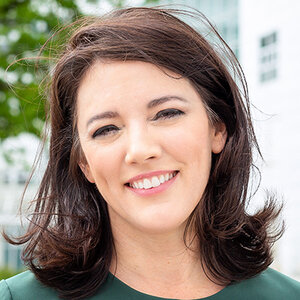
In the wake of the World Economic Forum’s (WEF) annual meeting, one thing has become clear: If we want to save ourselves from the multiple crises cascading across our globe, we need to change our framing.
Specifically, the ideas and incentives which have governed our global economic system have led us into an impossible situation: a linear, take-make-waste economic model that does not value what should be valued.
There is another way. Visionary economists such as Mariana Mazzucato and Kate Raworth have been calling for a different framework for our economy, a new concept of the common good, an economic system that is restorative and regenerative. Earth for All has set up a 21st Century Transformational Economics Commission to explore which ideas will enable the equitable future we want. Others, like Lewis Akenji, are exploring our role–as citizens–and how our consumption needs to change to keep us within a 1.5°C world.
Such transformational thinking was not on the agenda at this year’s WEF meeting. Rather, the focus was on the short term. This is not a surprise, given that we are being rocked by a number of shocks–looming recessions, energy insecurity, skyrocketing costs of living, threats to national security, etc. These are immediate needs, causing pain and suffering to many, that need immediate action from policy makers.
Yet, in the process of discussing what to do in this unprecedented time of short-term crises, inevitably we are neglecting the longer-term ones. As climate activist Vanessa Nakate asked about the annual meeting, “What haven’t we said? What haven’t we done? What haven’t we communicated enough?”
In short, if we want to get ourselves out of this mess that we created, we need holistic, long-term thinking, followed by action. And that does not come easily, especially to politicians vulnerable to the election cycle.
To be fair, WEF is an easy target to criticize, having drawn the global elite on private planes to Davos year after year to, well, talk. And even this “talk” has failed to help us see and prepare for what’s around the corner.
Yet for me, as a leader of a philanthropic foundation, I still find that WEF offers a unique platform–unmatched in its convening power—to connect with leaders across business, government, finance, and civil society. I find it has the potential to create the space where these deep, systemic problems can be tackled, economic models questioned, and bold action committed.
While the conversations focused on the “here and now” of our cascading crises, I did find that this gathering created momentum and energy around four things that are critical for the just transition we need to make:
1. Money, money, money. As U.S. special envoy on climate John Kerry said, “So, how do we get there? Well, the lesson I’ve learned…is: money, money, money, money, money, money, money.” We need a lot of it ($94.8 trillion) to transition emerging markets in a fair and just way). In fact, it’s a bit of an all-hands-on-deck moment for investors. Moreover, this is where philanthropy, with its patient, risk tolerant, and long-term view, can play a role. At Laudes Foundation, we’re excited to be part of the Giving to Amplify Earth Action (GAEA) collaboration, launched in Davos, which will harness this catalytic power of philanthropy to unlock additional resources–both private and public–to generate “equitable climate and nature solutions.” Philanthropy alone won’t solve these systemic issues, but can certainly unlock other, larger forms of finance that can.
2. Values into value. When I reflect on the ideas and incentives underpinning our current economic system, it’s clear that we are not valuing what should be valued. What’s more, we are valuing things that even destroy value. Look at what wartime expenditure does to increase GDP, still the barometer of progress. In Davos, I participated in several closed-door dialogues with business leaders who understand this and are working to deepen trust, embed inclusivity, and ultimately bring a new level of empathy to how they lead. “We have to start thinking about equality as an enabler to where we’re going,” said one CEO. Business has the credibility to do this. According to the 2022 Edelman Trust Barometer, which launched during WEF, business continues to be the most trusted institution (at 61 percent).
3. Power to producers. In philanthropy, we often talk about the power imbalances that perpetuate the inequities in our world. We see this in “traditional” value chains where farmers, dependent on single commodity markets (and the whims of the weather), remain poor and unable to build security and wealth for their families. But this is not sustainable. In Davos I was inspired by the different models being increasingly embraced by business, such as regenerative production landscape models, which put producers at the core. Along with World Business Council for Sustainable Development, we were able to bring business and civil society leaders together to discuss how private and public investors can partner with communities and producers to build climate resilience and create food and income security. It’s not an easy way for corporations to work, but leaders such as Nestlé and Unilever are not only embracing it but resourcing for it to ensure it is successful. Philanthropy can play an enabling role here; Laudes Foundation is proudly partnering with IDH, WRI Brasil, and Diaconia on a new landscape in Brazil’s Caatinga biome, one of the world’s most biodiverse semi-arid regions.
4. Radical inclusion. The design of any action that enables a just transition needs to include the voices of those workers, producers and communities who have the most to gain or lose. At Laudes Foundation, we try to design our programs according to the mantra “nothing about us without us.” In Davos, and for the first time in my experience at the event, I heard business CEOs call out the need for ‘radical inclusion’ and the urgency to look beyond our Western lens engage meaningfully with those on the frontlines and elevate leadership from the Global South. I saw more diversity at the table and voices of youth, indigenous leaders, farmers, and activists given space.
All of this is positive and should create more energy and momentum where it’s desperately needed. At the same time, the urgency to act is real. This was painfully clear when Earth Commission co-chairs Johan Rockström and Joyeeta Gupta unveiled, in a chilling visual on the WEF main stage, that we are transgressing the boundaries that are needed for a safe and just world.
Will we, collectively, be brave enough to do something about that?
Leslie Johnston is CEO of Laudes Foundation in Zug, Switzerland.



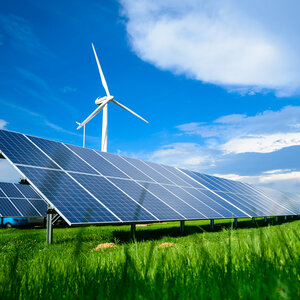
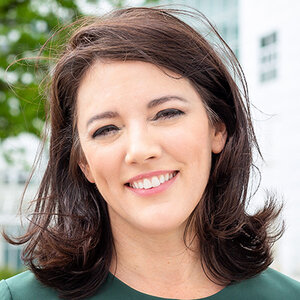
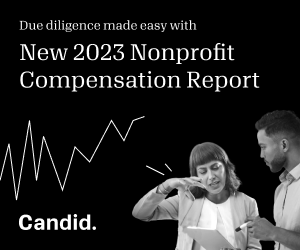

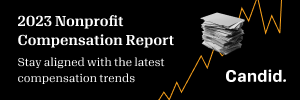
Too little, too late? The growing urgency for philanthropic leadership